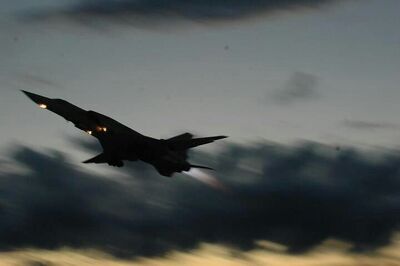Operation Eclipse
Operation Eclipse was the codename for a strategic bombing campaign carried out by the Ruvelkan Imperial Air Force against Syara during the Zemplen War.
Following Ruvelkan defeats in the Battle of Sagerejo and Operation Harpe the strategic situation seemed to favor the Syaran Commonality Armed Forces, which by July 2009 controlled nearly 40% of Ruvelkan territory and had inflicted a number of defeats on the Imperial Armed Forces of Ruvelka. The plan was devised by Lt. General Viktor Kende to target Syaran industrial and manufacturing facilities, as well as major staging areas for Syaran supply routes into Ruvelka. The plan was approved by the Imperial General Staff in early July as Syaran forces encircled Kaposvár, with the first bombing raid to be conducted on 22 July 2009. The name Eclipse was selected because the first raid would coincide with an expected solar eclipse.
The raids were carried out by the 47th Heavy Bomber Aviation Regiment commanded by Colonel Vanessza Márton utilizing Cacertian built AFSB-2 Spettro strategic bombers. The first raid was launched against industrial targets in the city of Gbevec, Makedon. Five more raids were conducted between July and November, the final raid launched against Syaran assembly areas near Mislava, Galania. Flying from extremely high altitudes, the Ruvelkan bombers either fired stand-off weapons from within Ruvelka's pre-war boundaries, or engaged in high-speed "flybys", making use of their supersonic speed to outrun Syaran air defense and patrolling fighters. The largest raid was conducted on 6 September, when a dozen Ruvelkan bombers hit munitions factories in Myzova. The majority of these raids were conducted without Ruvelkan loses, but on two occasions Syaran air defense systems shot down a total of three bombers while damaging another two. Ruvelka ceased its campaign on 14 November, as Syaran awareness of the raids and defensive preparations made the operation too risky to continue.
The strategic impact of the bombings has been a source of contention since the end of the war, as has controversy regarding the endeavor itself. It is generally acknowledged that Eclipse did not significantly impede Syaran industrial production of weapons manufacturing, however the diversion of Syaran fighter aircraft and air defense systems to defend Syaran airspace has been credited as impacting air operations in a war where the Commonality Air Force already faced a significant numerical deficiency. The decision to bomb Syara itself drew international criticism from some circles, largely due to the over 100 civilian workers who were killed during the campaign. Syara never retaliated with a bombing campaign of it's own, lacking strategic bombers itself, and during the war labeled the campaign as "terror bombing" due to civilian casualties. Although Syara declared the operation a war crime, none of the five crewmembers captured by the Syarans were charged as such, and were released in the prisoner exchange that followed the end of the war.
